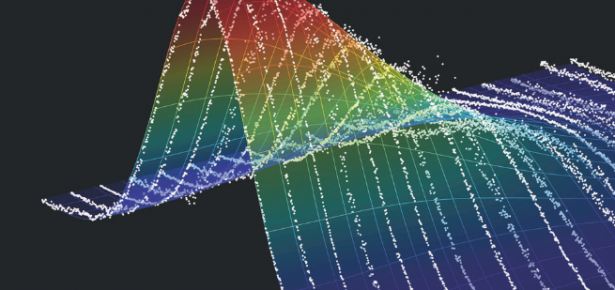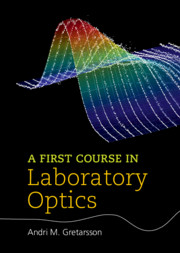
Lower level undergraduate physics labs are typically designed to demonstrate theory and often use a prescriptive, recipe-driven, approach. Upper level labs use more advanced methods and are supposed to develop the capacity of students to actually test theory elements in a rigorous way. Yet, it appears to me that by the time they graduate, many undergraduates haven’t bridged the gap between demonstration and testing. Due to the overly prescriptive nature of lab exercises, even at the upper level, they haven’t learned to design an experimental approach to match experimental goals.
Shifting our students’ perspective from one of demonstration to one of testing requires a conscious effort. In demonstrating a theory, students’ results are validated by agreement with current knowledge. In testing a theory, students’ results are validated through their own understanding of the measurement process. This shift to a self-critical and self-reliant perspective is challenging. To develop it fully by graduation, we need to incorporate it throughout all levels of laboratory instruction. For each experiment, we should ask students to analyze the procedure and analysis and allow them some freedom to change it, in a manner that is appropriate to the student level, equipment, and available time. This also serves to make lab classes more exciting. Even a modest amount of choice captures some of the creativity and excitement inherent in professional experimental physics.
During 15 years of teaching undergraduate labs, I’ve noticed the cost of an obvious feature of the prescriptive approach. When students have little input into the procedure or analysis and even use largely pre-assembled equipment, the experimental results are predetermined. Therefore grading must be process-focused rather than results-focused. In other words, graders typically ask “Were all the directions followed properly?” or “How well was the experiment recorded?” but not “How well was the approach thought out?” and seldom “How good were the results?”. I find that a perspective oriented towards theory testing, and a concomitant amount of student choice in the experimental approach, allows the focus of grading to rest on the quality of the experimental results achieved. Students generally respond with interest to such a disquisitive approach. It activates their sense of ambition.
I recently wrote a laboratory textbook, “A First Course in Laboratory Optics,” where the laboratory exercises intentionally omit many prescriptive details. The lab exercises are structured as a statement of goals with major steps called out. Students have to choose their approach for reaching those goals. (It’s a little like the “Technical Challenge” in “The Great British Baking Show”!) Instead of providing the full recipe, the textbook surrounds the lab exercises with lots of support in the form of relevant theory, application examples, discussions, and hints for possible approaches. It’s always clear that students are themselves responsible for choosing their own approach.
Although my recent book is intended for upper level students, I find that presenting laboratory exercises as opportunities to test theory is also motivational at the very lowest level. Again, it’s a change of perspective for most students. Consider the common “force table” experiment where students are asked to balance three forces on a suspended object and confirm that the force vectors add to zero. They tend to “roll their eyes” at this apparently trivial activity. Yet, when it’s presented as an opportunity to test the ubiquitous assumption that forces add like vectors (assuming Newton’s first law still applies) it’s rather more interesting. Students see a reason to try to place stringent limits and will adjust their approach accordingly.
Many lab instructors and lab programs already do this and more. They know that physics labs where students have creative input into their experiments are highly motivating. When we incorporate a theory testing perspective and grade accordingly, we can allow students more freedom in their approach. Graduates are better and it leads to more interesting labs.

A First Course in Laboratory Optics
Andri M. Gretarsson, Embry-Riddle Aeronautical University
April 2021,
Hardback,
ISBN: 9781108488853
Latest Comments
Have your say!